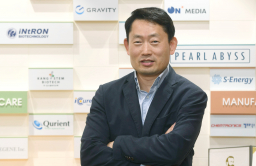-
KOSPI 2577.27 -2.21 -0.09%
-
KOSDAQ 722.52 -7.07 -0.97%
-
KOSPI200 341.49 +0.02 +0.01%
-
USD/KRW 1396 -2.00 0.14%
Why India’s top talent chose S.Korea for launch of edutech startup
Founder Pankaj Agarwal says serving the two markets has unique advantages; the company is also looking beyond Asia
By
Jun 17, 2022 (Gmt+09:00)
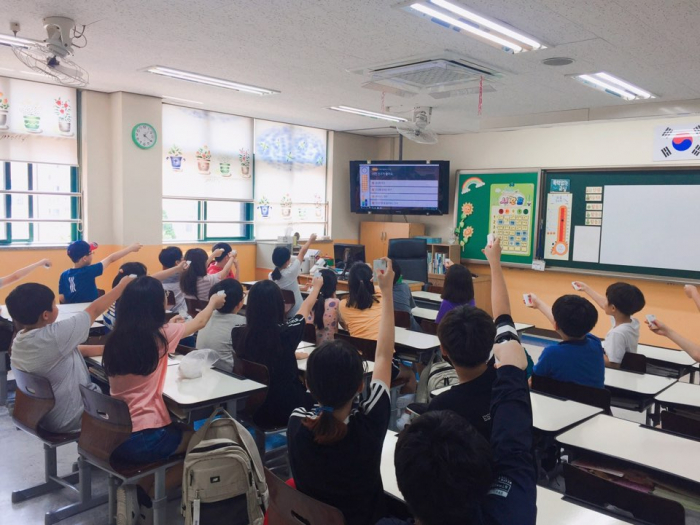
TagHive Inc. is an education technology startup building a bridge between South Korea and India.
The company’s founder and CEO Pankaj Agarwal founded the company in April 2017 as part of Samsung Electronics Co.’s in-house startup accelerator program. In fact, Agarwal is the first non-Korean beneficiary of the electronics giant’s C-Lab (Creative Lab) program.
In an interview with The Korea Economic Daily’s Hankyung Geeks section, the father of two adolescents, aged 10 and 15, said he wanted to establish a business that helps children.
Private and public institutions alike are seeing the benefit of the company's products. For instance, the United Nations Children's Fund (UNICEF) last month named TagHive as one of 10 tech startups that could help resolve the global education crisis.
On the day of the interview, Agarwal was returning from a presentation at a startup event hosted by The Ministry of SMEs and Startups.
ONE CLICK AT A TIME
Agarwal described his startup as a company that “adds a spoonful of convenience” to teaching.
The startup has two bilateral communication tools so far: Class Key and Class Saathi -- saathi means buddy in Hindi.
A clicker that fits in young adults' hands allows students to remotely answer yes or no and multiple questions in class.
Teachers can view the answers on their smartphones or computers, thanks to Bluetooth technology, which allows for real-time evaluation of how much the students are following the learning material.
The clicker can also be used for other purposes, such as voting for class president.
“Even students who are shy to speak up in class can easily participate using the remote control device,” Agarwal explained.
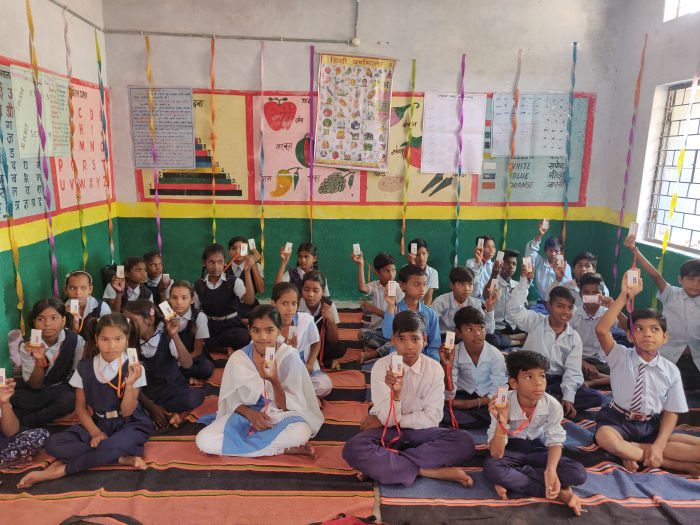
Class Key is designed for the South Korean classroom setting, and Class Saathi is made for the Indian classroom environment. While both solutions serve the same purpose, Key can be connected to a computer while Saathi can only be linked to a mobile app and can be used without the internet.
Currently, some 1,000 elementary schools in South Korea are using Class Key and the company is adding at least 30 new client schools per month.
The user count is higher in India where 350,000 students at 2,000 schools across the South Asian country are using Class Saathi.
In a pilot test jointly conducted by TagHive and the Korea International Cooperation Agency (KOICA), Class Saathi raised the students’ academic achievement and in-class participation by 8 and 10%, respectively.
FROM INDIAN VILLAGE TO HARVARD
Argawal was born in a small town in India as the second son of three boys.
Thanks to his grandfather’s passion for education, all three boys attended school despite living more than a hundred miles away from the nearest one.
The distance is why Argawal had to attend a kindergarten boarding school some 200 km away from home. The 39-year-old recalls waking up in the morning in his boarding quarters, getting ready, and going to kindergarten – all by himself at the age of 5 – and emphasized the experience instilled a strong sense of independence in him.
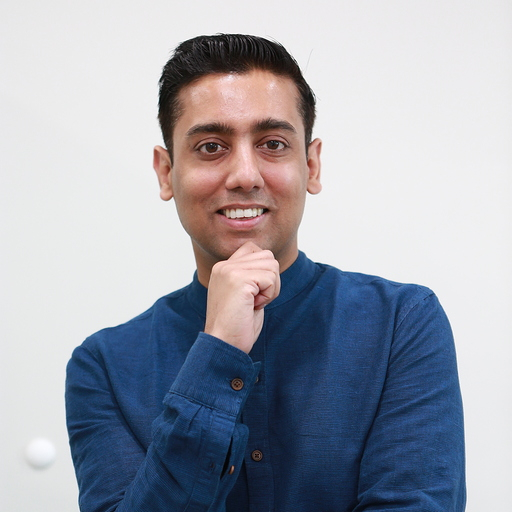
Always having been an A student, he studied at the prestigious Indian Institutes of Technology (IIT) with the aim of becoming a public servant in line with his parents’ wishes for him.
But things took an unexpected turn when Samsung Electronics’ representatives visited the institute to recruit talent in 2004.
Argawal flew to Korea the same year and got his master’s degree in electrical engineering and computer science at Seoul National University. He joined the electronics giant as an engineer upon graduation.
Samsung Electronics not only offered him a scholarship for his master’s at SNU but also for his MBA program at the Harvard Business School in 2010.
While working as an advisor to the CTO of Samsung Electronics after finishing his MBA, one of the projects he worked on was the tag system for the toy and education sectors. He developed upon that idea to apply for and get into the company’s in-house startup accelerator.
BUILDING A BRIDGE
About 90% of TagHive’s revenue comes from India, with 17 out of more than 30 employees working at its Kolkata office.
Still, Agarwal explains the Seoul office is necessary for both the loftier goal of building a bridge between India and South Korea; and from a business point of view.
The founder and CEO said, “It is a very particular advantage to approach both a country that is a technological powerhouse and another that has great infrastructure and sizable population.”
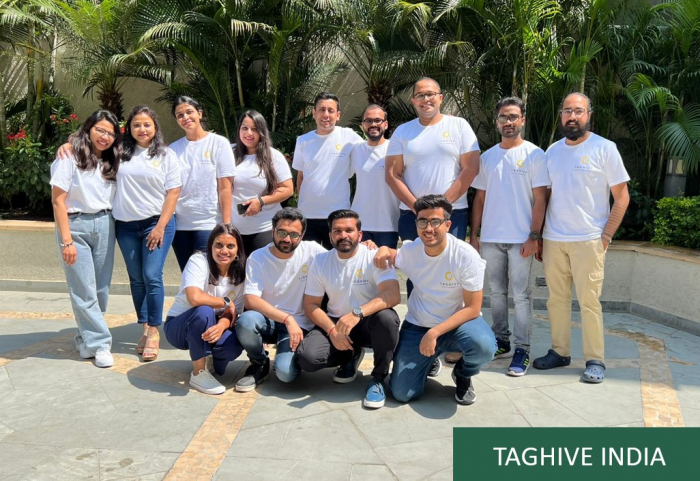
He explained that the company has the luxury of being able to recruit highly skilled developers in India. At the same time, working for a South Korean company is widely viewed as a perk for many industry insiders there.
Not only that, but the positive image attributed to the “Made in Korea” label also worked to the startup’s advantage when approaching India’s public schools for sales pitches.
The South Korean headquarters recently relocated from the Pangyo Techno Valley to the Songpa District of Seoul.
Not surprisingly, Agarwal is an ardent believer in the potential for unprecedented synergy between India and South Korea.
In his words, the Indian startup ecosystem’s 3Ds include Democracy, Demography, and Demand.
“Because more than half of the population is in their 30s or younger and the rise in the middle class, there is a lot of demand for goods and services,” the founder said. “Fair play is also guaranteed thanks to a robust democracy.”
As for the Korean market, Agarwal took note of the 3S: speed, smart and skilled people, as well Koreans being systematic and process-oriented.
“What struck me the most since coming to South Korea was that the ‘ppalli ppalli’ (hurry, hurry) spirit was pervasive everywhere,” he said. “I really enjoyed the fact that skilled workers were working promptly in a systematic manner here.”
TagHive aspires to bring value to the education industry with the accumulation of data. The company can collect data on the students’ participation and progress through the remote control keypads they use in class.
Argawal explained: “The device allows teachers and parents to see how each student found the questions and its value will grow with the number of users.”
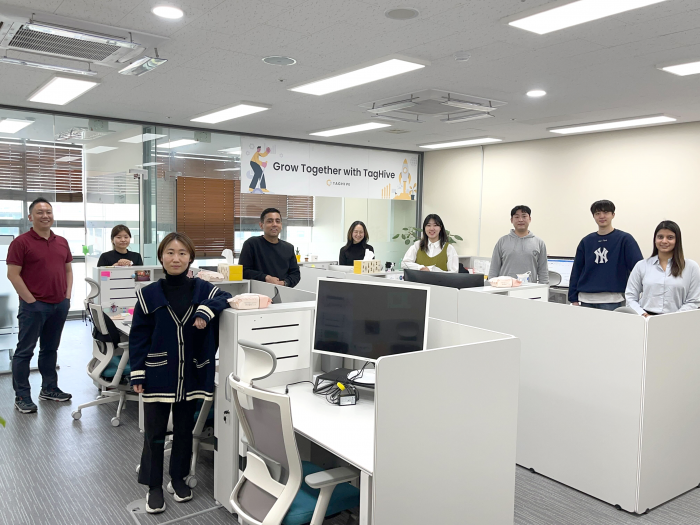
In the immediate future, TagHive will focus on the South Korean and Indian markets. Once its business in the two markets matures, the company plans to expand to the United States, Europe and Southeast Asia.
Agarwal is confident the Key and Saathi services are useful in areas with or without a solid educational infrastructure.
Late last year, the startup raised 4 billion won ($3.1 million) in a Series A round, in which Samsung Venture Investment Corp. and private equity fund Forest Partners participated.
The startup is gearing up for the second round of funding this year.
Write to Jong Woo Kim at jongwoo@hankyung.com
Jee Abbey Lee edited this article.
-
 Mergers & AcquisitionsKorea webtoon startup Kenaz acquired by hedge fund
Mergers & AcquisitionsKorea webtoon startup Kenaz acquired by hedge fundJun 15, 2022 (Gmt+09:00)
-
Jun 14, 2022 (Gmt+09:00)
-
Jun 14, 2022 (Gmt+09:00)
-
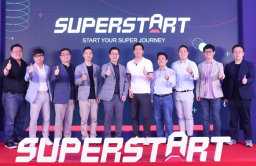 Korean startupsLG Group to invest $119 million into 300 startups through 2025
Korean startupsLG Group to invest $119 million into 300 startups through 2025Jun 09, 2022 (Gmt+09:00)
-
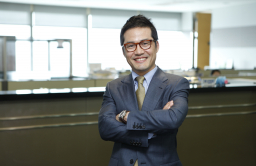 Venture capitalSouth Korean startups raise record-high Series A funding
Venture capitalSouth Korean startups raise record-high Series A fundingJun 08, 2022 (Gmt+09:00)


